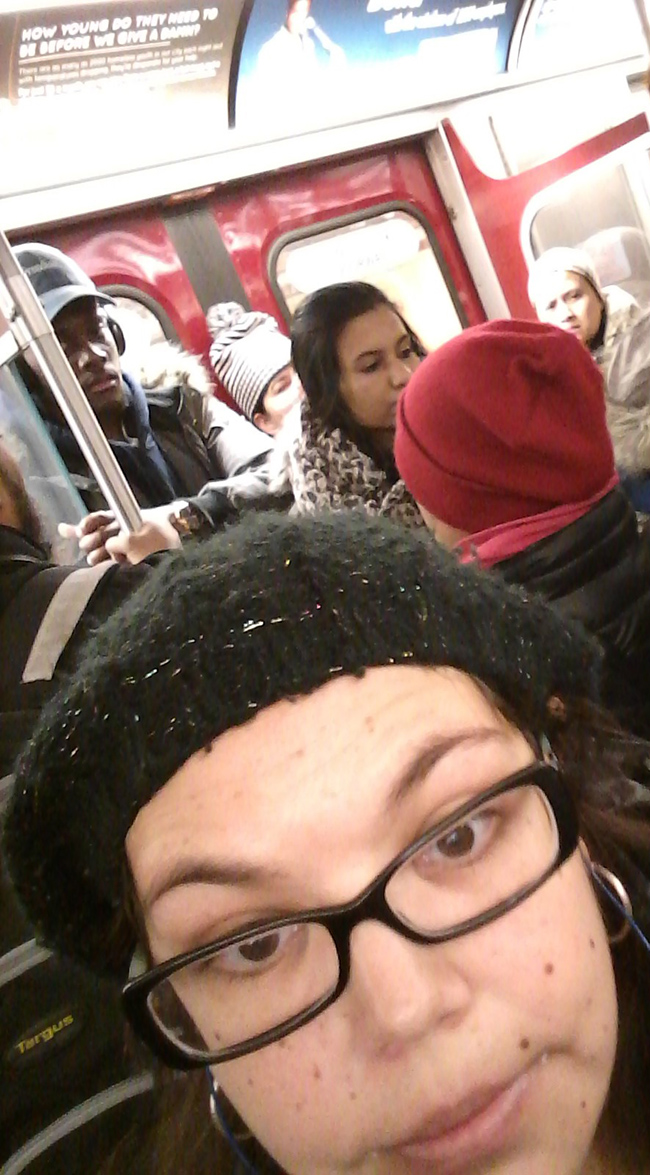Opinion: Culture shock

By Kristin Grant
In my youth I was fortunate enough to have lived in Europe for several months. As First Nations I was viewed as somewhat exotic. I was an outsider, surrounded by foreign languages and people not from my home country and from different cultures. I loved my time there, I just never expected to feel like that again on a regular basis in my own country.
This fall I moved to Toronto from a lily-white central Ontario town. I am no stranger to Toronto. I used to come here on a nearly monthly basis for concerts or theatre so the culture shock I feel living here has taken me by surprise.
In my old town even though I felt like a minority being Cree, I still felt like a part of the majority because I was one of many Canadian-born residents. There was still that shared identity and community. It was really only in the last year or so that my old employer had become more ethnically diverse. I would say probably less than 10% of my co-workers were non-Canadian born visible minorities. It was basically assumed that everyone celebrated Christmas. My new job is much more diverse probably 70% if not more are visible minorities.
Now at work, on the TTC, around town and in my apartment building I am constantly surrounded by people who weren’t born here and there are foreign languages are spoken. I’ve now lost that feeling of shared identity of being Canadian-born with the people around me in addition to feeling like the lone native.
As someone with major travel aspirations the cultural diversity is wonderful, but from the perspective of someone who because of the residential school system didn’t grow up in her own culture I want to connect with others with the same background.
According 2016 to Statistics Canada research only 23,000 First Nations live in Toronto out of a population of 2.7 million. With not even a percent of the total population, First Nations are not among the top 20 ethnic groups.
Large cities tend to develop pockets of people from the same community for example the Danforth has Greektown, Bathurst has a large Jewish community, there is also Chinatown, Koreatown and Little Italy. Toronto definitely isn’t like Northern Ontario where you see lots of First Nations people around town and when you go to use your status card at a store, cashiers don’t look at you like you have two heads! Some days I feel like saying don’t you know what my ancestors agreed to so you can share the land and I can use this card? I digress.
Aside from the Native Canadian Centre of Toronto I am not really sure where to go to meet others like me to have that sense of community that other cultures seem to have in this city. I am left wondering where my fellow Natives at?
This poses the question what is keeping First Nations away from the big city? I wonder if our people stay on reserves and in northern towns mainly for the sense of community it offers them compared to the larger cities? Could this be a result of colonization?
Canada likes to brush colonization under the rug. On big events like Canada Day 150, First Nations are trotted out to perform ceremonial dances and it feels like we weren’t the first peoples on this land obligatory afterthought. Some acknowledgment of First Nations is more sincere; the National Ballet of Canada for example in their programme acknowledges that the land they operate on is the territory of the Mississaugas, Haudensaunee and Huron Wendat and expresses their gratitude. That is a wonderful sentiment but still whitewashes over at what cost they are working in this community.
Other than June 21 our people, history and culture are largely underrepresented and marginalized in society. While other cultures get a whole month of recognition and others none at all. This in itself in problematic and needs to be addressed and is a whole other discussion.
I find myself asking myself did assimilation succeed? What does it say about the ramifications of colonization when someone -a descendant of our nation’s First Peoples- feels like an outsider or foreigner in their own country whether or not they live in a small town or big city?


